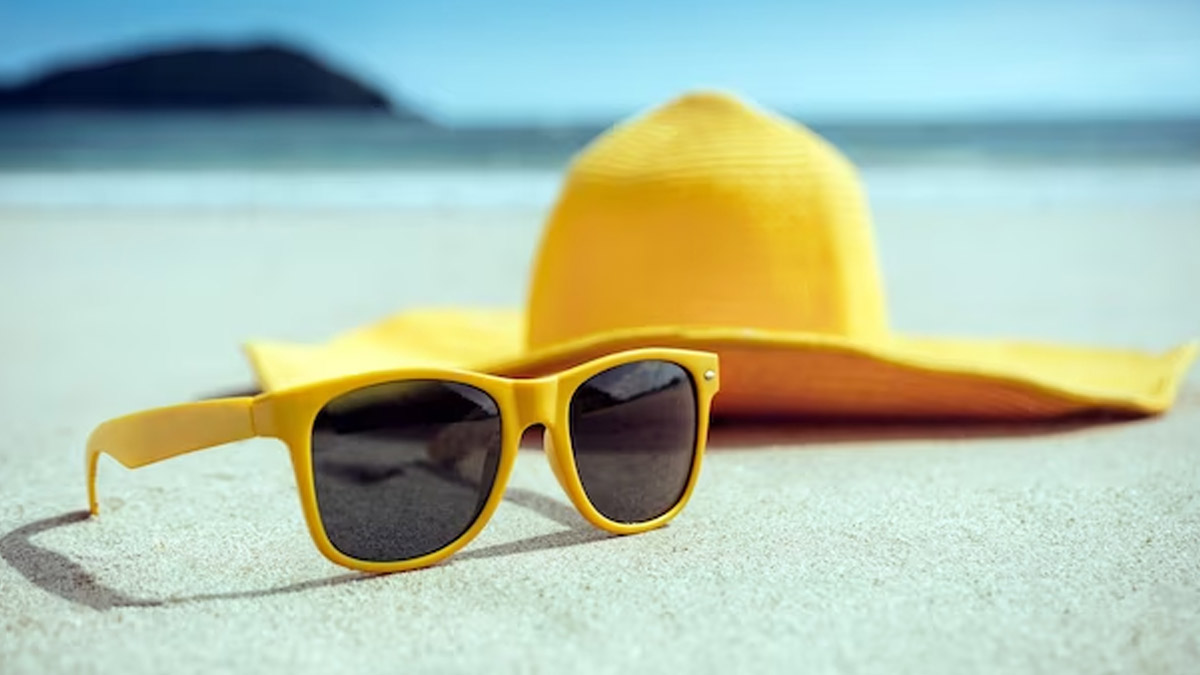
With its promise of sandy beaches, refreshing dips in the pool, and endless outdoor adventures, the summer season brings joy to many. However, amidst the fun, it's crucial to prioritise the safety of our eyes. From the Ultraviolet (UV) rays to the various hazards lurking in the water, there are plenty of eye-related challenges we need to be aware of. Dr Pradeep Aggarwal, Senior Consultant, Sharp Sight Eye Hospitals, listed some essential tips and guidelines to maintain eye safety.
Table of Content:-
Tips To Maintain Eye Safety

Wear UV-protective Sunglasses
When spending time outdoors, especially in the tropical areas, it is important to wear sunglasses that provide 100% UV protection. Dr Aggarwal said that prolonged exposure to UV radiation can lead to various eye conditions, including cataracts, macular degeneration, and photokeratitis (sunburn of the eyes). Always opt for sunglasses labelled with UV 400 or 100% UV protection to shield your eyes. Also, wrap-around style or oversized frames offer additional protection by minimising the UV exposure.
Also Read: Eye Care For Older Adults: Expert Lists Eye Issues And Protective Tips
Use Goggles For Swimming
If you plan to take a dip or any other water body, wearing goggles is highly recommended. Dr Aggarwal informed that goggles create a barrier between your eyes and the water, thus preventing irritants like chlorine, salt, sand, or bacteria from coming into direct contact with your eyes. Always opt for goggles specifically designed for swimming and ensure a proper fit to prevent water from seeping in. This will help avoid eye discomfort, redness, infections, or potential damage caused by irritants present in the water.
Avoid Rubbing Your Eyes
Dr Aggarwal said, "While swimming or spending time at the beach, it's common to encounter sand, saltwater, or pool chemicals that may irritate your eyes. If you experience any discomfort, refrain from rubbing your eyes, as this can exacerbate the irritation and potentially lead to corneal scratches or infections. Instead, rinse your eyes gently with clean water or use artificial tears to flush out irritants. Furthermore, if the irritation persists or worsens, seek medical attention from an ophthalmologist."

Protect Your Eyes From Wind And Sand
Beach environments often come with strong winds that can carry sand and other debris, posing a risk to your eyes. To protect your eyes, consider wearing wrap-around sunglasses or even a wide-brimmed hat to create a shield against blowing sand. Dr Aggarwal added that if you wear contact lenses, it's always recommended to switch to prescription goggles to prevent sand particles from getting trapped between your lenses and eyes. This will minimise the risk of corneal abrasions or infections.
Also Read: Summer Eye Care: Here's How You Can Protect Them From The Sun
Keep Yourself Hydrated And Take Breaks
Proper hydration is crucial during hot summer days, as it helps prevent dryness and dehydration. When your body is properly hydrated, it reduces the risk of dry eyes and discomfort. Also, try taking regular breaks from prolonged sun exposure or water activities to rest your eyes. This will help alleviate eye strain and fatigue, keeping your eyes fresh and comfortable throughout the day.
Rinse Your Eyes After Swimming
After swimming, it's important to rinse your eyes with clean water. This will help remove any residual chlorine, salt, or bacteria that may have come into contact with your eyes. Dr Aggarwal advised using a gentle stream of water or a sterile saline solution to rinse your eyes thoroughly. He said that this simple practice can reduce the risk of eye infections or irritations caused by prolonged exposure to pool chemicals or bacteria present in untreated water bodies.
Bottomline
Enjoying the summer season by swimming or spending time at the beach is a delightful experience. By following these essential tips for eye safety, swimmers, and beachgoers can protect their eyes from potential hazards and ensure a pleasant and safe summer adventure. Remember, your eyes are precious, and taking proactive measures will help you maintain optimal eye health throughout the season.
Disclaimer
The information in this article is shared by an expert, however, we advise you to consult with your expert, if you notice any complications in your eye.
Also watch this video
How we keep this article up to date:
We work with experts and keep a close eye on the latest in health and wellness. Whenever there is a new research or helpful information, we update our articles with accurate and useful advice.
Current Version